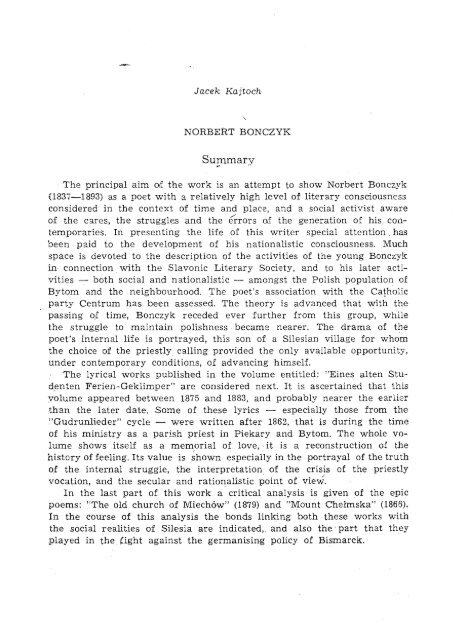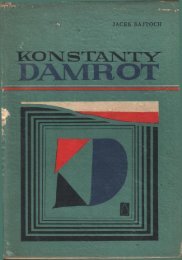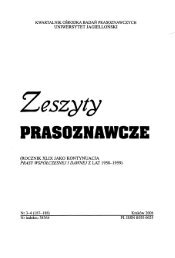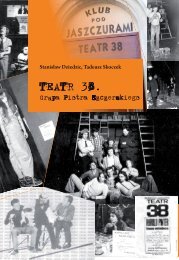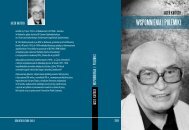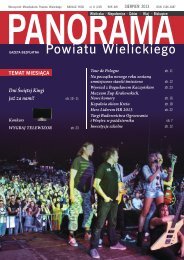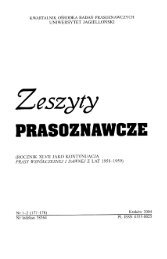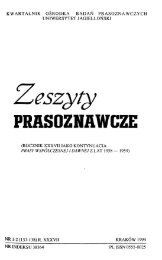Jacek Kajtoch.
Jacek Kajtoch.
Jacek Kajtoch.
You also want an ePaper? Increase the reach of your titles
YUMPU automatically turns print PDFs into web optimized ePapers that Google loves.
NORBERT<br />
BONCZYK<br />
Summary<br />
The principal aim of the work is an attempt to show Norbert Bonczyk<br />
(1837—1893) as a poet with a relatively high level of literary consciousness<br />
considered in the context of time and place, and a social activist aware<br />
of the cares, the struggles and the errors of the generation of his. contemporaries.<br />
In presenting the life of this writer special attention . has<br />
been paid to the development of his nationalistic consciousness. Much<br />
space is devoted to the description of the activities of the young Bonczyk<br />
in connection with the Slavonic Literary Society, and to his later activities<br />
— both social and nationalistic — amongst the Polish population of<br />
Bytom and the neighbourhood. The poet's association with the Catholic<br />
party Centrum has been assessed. The theory is advanced that with the<br />
passing of time, Bonczyk receded ever further from this group, while<br />
the struggle to maintain polishness became nearer. The drama of the<br />
poet's internal life is portrayed, this son of a Silesian village for whom<br />
the choice of the priestly calling provided the only available opportunity,<br />
under contemporary conditions, of advancing himself.<br />
The lyrical works published in the volume entitled: "Eines alten Studenten<br />
Ferien-Geklimper" are considered next. It is ascertained that this<br />
volume appeared between 1875 and 1883, and probably nearer the earlier<br />
than the later date. Some of these lyrics — especially those from the<br />
"Gudrunlieder" cycle — were written after 1862, that is during the time<br />
of his ministry as a parish priest in Piekary and Bytom. The whole volume<br />
shows itself as a memorial of love, it is a reconstruction of the<br />
history of feeling. Its value is shown especially in the portrayal of the truth<br />
of the internal struggle, the interpretation of the crisis of the priestly<br />
vocation, and the secular and rationalistic point of view.<br />
In the last part of this work a critical analysis is given of the epic<br />
poems: "The old church of Miechów" (1879) and "Mount Chełmska" (1868).<br />
In the course of this analysis the bonds linking both these works with<br />
the social realities of Silesia are indicated,, and also the part that they<br />
played in the fight against the germanising policy of Bismarck.


